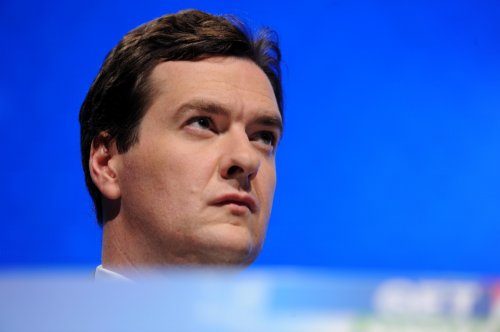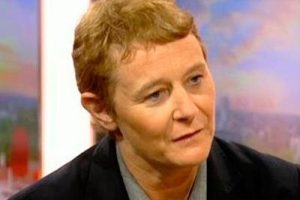Shifting political sands puts Powerhouse onus on the North

It has been six years this month since George Osborne, then Chancellor of the Exchequer, told an audience in Manchester that the dominance of the powerhouse of London was not good for the UK and “we need a Northern Powerhouse too”.
 What no-one knew at the time was that we were about to embark on the most tumultuous period in British politics since the 1970s.
What no-one knew at the time was that we were about to embark on the most tumultuous period in British politics since the 1970s.
In those six years, there have been five metro-mayors elected in the North, four Chancellors, three general elections and three Prime Ministers, two referenda and one global pandemic.
It has been a breathless period for politics, leaving businesses to deal with waves of uncertainty and disruption.
There are three-word slogans that partly define the period and the political fortunes of its principal players – most memorably “strong and stable” and “get Brexit done”.
But it is two-word mission statements – as Osborne’s “Northern Powerhouse” was repositioned in Westminster as “levelling up” – that have shaped the Government’s ambitions for the North.
Former Northern Powerhouse minister James Wharton, who is now part of Squire Patton Boggs’ European public policy team, is convinced of the shift in Government thinking.
Wharton said: “The heyday of the Northern Powerhouse as a brand, rather than focus on the Northern economy, was when George Osborne was Chancellor and was really leading the charge.
“It’s been superseded by what they’re calling the levelling up agenda, which has many of the same opportunities for the North in it, but it doesn’t have that singular focus on North.”
That void has been filled by leaders based in the North, according to Northern Powerhouse Partnership (NPP) chief executive Henri Murison.
The NPP was set up by Osborne and often has the standing more often given to an official body, despite being an independent organisation representing the voice of business and civic leaders across the North.
Murison said: “The Northern Powerhouse project is now owned by us here in the north by our business leaders, by our civic leaders, by our Metro mayors.
“Rightly, the Government isn’t just going to be able to decide whether levelling up, which is their political project, constitutes enough to achieve that Northern Powerhouse vision of a rebalanced economy.”
The NPP has produced a five-point plan to enable the North’s economy to respond to the economic challenges created by the lockdown.
It wants the Government to commit to shovel-ready infrastructure projects, support green energy initiatives, deliver faster broadband, invest in skills, and create an enhanced pupil premium scheme to support school children.
“I think the public also sees that the Northern Powerhouse agenda needs to be broader than perhaps where it started,” added Murison.
The progress the Northern Powerhouse has made has often been the result of previously-competing organisations working together.
Metro-mayors are now running the city regions in Liverpool, Manchester, Sheffield, North of Tyne and Tees Valley, with West Yorkshire due to elect its first next year.
Collaboration is also taking place with statutory sub-national transport body Transport for the North, the group of Northern Local Enterprise Partnerships NP11, and the N8 Research Partnership which brings together the North’s research-intensive universities, among the organisations leading the way.
Eve Roodhouse, chief officer for economic development at Leeds City Council, said: “The chancellor has stated that the ambition remains to level up. However, that task probably just became a lot more challenging.
“If anything we need to collaborate more than ever, across our cities and across the region and across the north as a whole.
“To make sure that we can really, more than ever, take those opportunities to get the economy structured in the right way, and to move forward positively.”
But progress remains influenced, if not dependent, on Government and its willingness to invest in the North.
And the North’s influence on Government can appear to be slightly weaker now that the Northern Powerhouse minister does not attend Cabinet.
Instead responsibility in Cabinet for the Northern Powerhouse officially sits with Welwyn Hatfield MP Grant Shapps because of his transport brief.
However a lot of the hope is invested in Rishi Sunak, the MP for the North Yorkshire seat of Richmond – who wasn’t even in Parliament when Osborne launched the Northern Powerhouse project.
Once again it is the Chancellor who is seen as being the key voice for the North around the Cabinet table.
Within weeks of moving in to Number 11, Sunak’s March 11 Budget confirmed a devolution deal for West Yorkshire and plans to open an economic campus in the North with 750 staff from treasury, trade and other government departments.
But the Chancellor now has other priorities, as he tries to find a smooth fiscal path to take the UK out of being a locked-down society and into a post-EU economy.
The recession will suck resources and energy out of the economy and shift the ambition from levelling up to ensuring the North does not fall further behind.
Wharton added: “It’s depressing when I think back to the whole thrust and purpose of Northern Powerhouse to hear yet again the recession may well or is expected to hit the North hardest.
“It seems to be that’s what we’re trying to get away from, trying to diversify and build depth in the normal economy. But, nonetheless, it has been the case before, it looks like it might be the case again.”
 This article is part of the Reviving the Northern Powerhouse economy series, in partnership with Squire Patton Boggs.
This article is part of the Reviving the Northern Powerhouse economy series, in partnership with Squire Patton Boggs.
Check out the other articles in the series.
Visit TheBusinessDesk.com’s YouTube channel at https://www.youtube.com/c/thebusinessdesktv to replay the webinars and watch the clips of senior business figures analysing the Northern economy.










